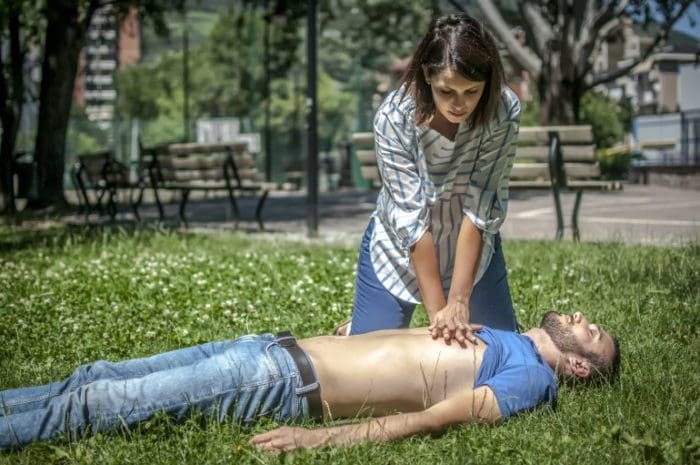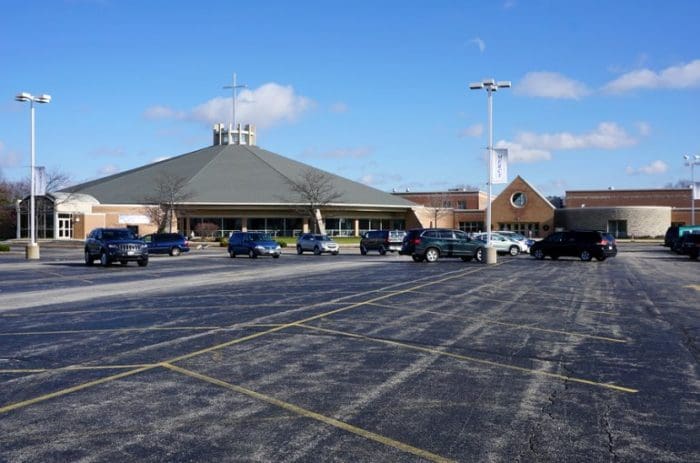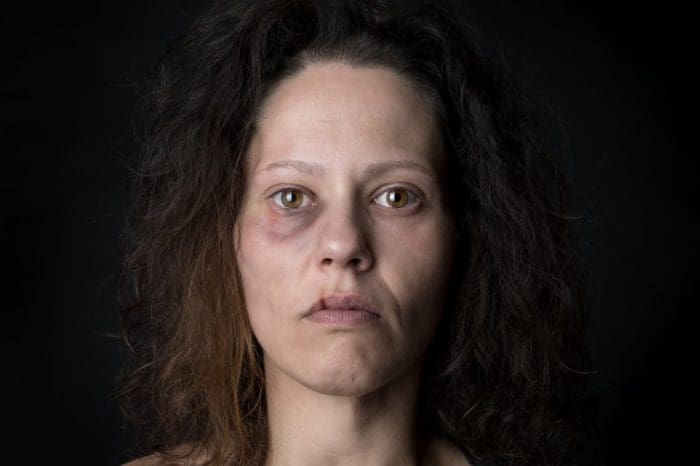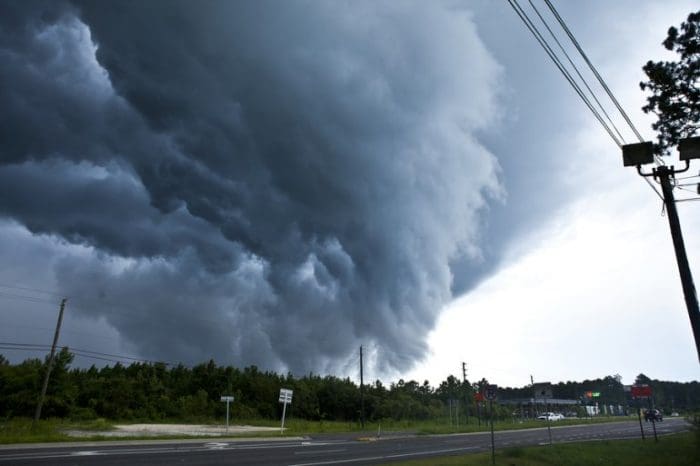Ultimately, when seconds count, help is just minutes away. This applies for police emergencies, as well as fire and medical. And in places with large numbers of people, those present become first responders, whether they want that role or not.
I’ve attended a number of church security seminars and courses. Some themes consistently appear in the curricula when it comes to church members volunteering to help their fellow parishioners in emergencies. Especially for places of worship, considering starting a new safety program. For those with existing programs, here are some points you may not have considered.
For those without safety teams, maybe some of these points can make it into practice by key individuals on an informal basis. Even that could make a difference if the worst happens. Ultimately, if they save lives or prevent a violent incident or three, that counts as a win for the good guys.
Select the right people
Churches have to be careful about who serves in a formal or semi-formal role providing church security. These persons should be level-headed and fairly well-trained outside of using a gun so they have tools at their disposal other than that gun on their hip. You know the old expression, when all you have is a hammer, everything looks like a nail.
I’ll also add a caveat even there. I know a few firearms instructors who try to offer “church security” coursework, but frankly, it tends to be long on the least likely-to-be-used techniques (gun) and short on the not-so-glamorous stuff (de-escalation skills) that will keep situations from becoming gunfights to begin with.

Naming your church’s team
It may seem trivial, but the first order of business will be to name your church’s team. “Church Safety Team” sounds helpful and innocuous to the most folks. It avoids the topic of security for those who would rather bury their heads in the sand when it comes to the need for security (armed or otherwise) in a house of worship. Meanwhile, everyone supports safety.
Selecting the members
While a lot of folks seem willing to wear a concealed firearm to protect against the high profile attacks, that doesn’t mean they’re well-suited to protecting those outside themselves and their immediate family.
The last thing any church wants is an untrained, inexperienced or ill-tempered church “security” person pulling a gun on someone inappropriately over a mildly heated child custody dispute in the daycare area. Or having a negligent or accidental discharge.
Anything like the above will drive off members about as quickly as a pastor getting arrested for child sex abuse.
So while anyone should be able to carry to protect themselves and their loved ones, entrusting “just anyone” with a gun to represent your church on the security or safety team is a risky proposition at best.
Safety team training can (and should) include these topics among others: situational awareness, communications, basic to intermediate first aid/CPR/AED, verbal de-escalation techniques, physical “de-escalation” (including both restraint techniques and take-down techniques), and perhaps lastly, the final thing: the gun.
Everyone on the safety team doesn’t have to know everything, of course. For example, recruit church member paramedics, EMTs or other medical types to handle medical issues.
Even seasoned citizens serving as greeters can play a crucial role on a church safety team, too.
Watching for dangers

Frankly, the most dangerous place at church is the parking lot. Robberies happen there, as can domestic violence incidents where an aggrieved partner (spouse, BF/GF, estranged, or whatever) brings the domestic drama to the church property because he/she knows the church member will be there on Sunday mornings.
Furthermore, limit access to the church itself by keeping the secondary entrances locked. You might even consider locking the primary entrance doors a few minutes after services begin. A safety team member can admit any late-comers, but making entry difficult will help thwart lunatics, criminals or other evil-doers.
Make the door greeters part of the safety team by giving them radios along with the rest of the safety team. They will serve as an extra set of eyes as they welcome parishioners. Their mission? Spot suspicious behavior, anything out of the norm as part of situational awareness.
How will greeters and team members know what is suspicious? This primarily involves identifying anything outside of the baseline of normalcy for a given environment, and giving those things additional scrutiny.
Obviously, they and other team members should watch for signs of domestic or child abuse. If detected, at the very least, maintain a heightened awareness near those persons in case the abuser shows up on the property.

At the same time, all team members should be drilled on guiding congregation members to safety in event of a fire, weather or medical emergency, as well as a potential security issue.

Read two outstanding books: “The Gift of Fear” by Gavin De Becker and “Left of Bang” by Patrick Van Horne and Jason Riley.
Learn those books and live them and you’ll be ahead of 99.44% of people in identifying potential threats long before they become real problems. Identifying issues at a distance gives the good guys options and options mean increased safety.
Once your team leaders have familiarized themselves with these two books, they can train fellow greeters, ushers and safety team members on the things to look for so they can alert others through the radio network when they see someone or something suspicious.
Not only that, but as part of de-escalation, if a potential bad guy gives off pre-violence indicators, church safety team members can preemptively go hands-on as needed with greater confidence.
Remember, though, unless you worship in Baghdad, you will encounter far more medical issues than “security” situations. Having people on hand who can handle both will allow church members and leaders feel more comfortable and safe.
Don’t forget weekday events
Larger churches will also host events, breakout groups and study sessions throughout the week. As volunteer safety team staffing allows, having one or two team members present for those events will keep people safer at those times as well. The Charleston church shooting happened on a Wednesday evening.
Remember those parking lots. Keep the exterior well-lit and the doors secure. Especially after dark.
Formal training
Lastly, consider formal instruction from an expert. For those in the Midwest, I strongly recommend Tom Whitaker from the St. Louis area.
After a lunatic killed his pastor during a church service, he organized his church to implement a safety team, drawing on a decade or more of training and professional experience. He’s the real deal and an outstanding instructor.
He does church security training to save lives and keep good people safe. He can be reached at <[email protected]>. Tell him I sent you his way.
There are other top-notch church security trainers all across America. Ask around to find a good one if your church seeks outside expert help. Even for those churches who think they have a good handle on their security, an outside perspective might prove quite worthwhile.
Lastly, if you have a chance to go see Lt. Col. Dave Grossman doing one of his church security seminars, send some of your key people. It’s worth every penny.
Ultimately, it’s up to church members to keep their flocks safe. Because when seconds count, police are just minutes away.





A sign out front that reads “No visitors” should also help.
sounds… religious. Or wait.. is that a cult thing? Sorry, I get the two confused.
BELT FED, BOYS !!!
And claymores!
“Frankly, the most dangerous place at church is the parking lot.”
That’s a *big* issue down here, with the larger churches. The local ‘thug life’ prey on the elderly. The further away the cars are from the sanctuary the more exponential the problems become…
A lot of good points. However I Don’t know that I’ve heard of a wack job (face it, any mass shooter is a wack job) who could be talked out of his intent to kill lots of folks. My mind tells me the person trying to talk down the wack job, will be the first one shot. Yea, it sometime works with hostage negotiators, but the negotiator is not normally face to face with the bad guy, and in the rare occasion they are, they have backup, usually in the form of a sniper. So, absolutely try talking, but have a firearm real close.
I totally agree. Once a shooter gets that deep into their plan. Talking is the last thing on their mind. Once the threat has been recognized. Hesitation will get you or others killed. You MUST eliminate the threat without mercy. The lives you have agreed to protect are depending on you and/or your team. I realize taking another persons life goes against everything most people have been taught. And yes it is a horrible thing. It is imperative that you have made the decision to take that life long before an event occurs. Made your peace with your God if you so believe. Some people reading this will think me hard and callous. When the SHTF you better be hard and callous. Active shooters are looking for one thing. As big of a body count as possible. By the time they start shooting the reason why if there is one is long past in their mind. So you better be ready too meet that threat or be a part of that count. Keep Your Powder Dry.
Darkman, you said it much better than I did. The mind is the first weapon, the gun is the 2nd. Your mind has to first be prepared to use the 2nd.
“However I Don’t know that I’ve heard of a wack job (face it, any mass shooter is a wack job) who could be talked out of his intent to kill lots of folks.”
The “conflict de-escalation” training is for when a far more likely situation like a domestic situation presents itself.
Be prepared for a mass-murderer, but be more prepared for the guy who can’t accept his spouse left him…
Then he wouldn’t be a mass murderer, would he? But that still wouldn’t mean you should not be prepared with a firearm in case the bad guy still wanted to take out the wife/husband/BF/GF. My guess is, if that was the case, the attack would be in the parking lot, not inside the church. Easier to target, less witnesses and easier escape. In any case, the idea is to be prepared for whatever happens.
“Then he wouldn’t be a mass murderer, would he?”
The question asked was, why are they bothering teaching de-escalation skills.
It’s not for the mass murderer, it’s for the far more likely scenario of an ugly domestic dispute. It sounds *perfectly* reasonable to me for the security staff to learn both skills…
I totally agree, it’s never a bad thing to learn those skills. Like I previously said, just have a gun ready when and if those skills fail.
Clarification – Use the de-escalation skills on Mr. Angry. If that fails, security can go ballistic to protect the congregation.
Therefore, teach *both*…
My church *refuses* to seriously discuss these threats. Their “big answer” is, we’ll post the head usher at the front door to meet any strangers who wander in.
I told them, “If God-forbid this ever happens, you’ll know this is an emergency when you hear a single gun shot. About 10 seconds later, a maniac will be in the sanctuary. The only person who will stop him is someone (me) who doesn’t obey your silly ‘rules’.
Tim, Amen! The best way to keep me out of a place of worship, or any other place for that matter, is to tell me to leave my firearm outside.
Yeah, my synagogue has a hide and wait for LE attitude, ‘cause gunz.
I have my own plan. 😉
Yea, I’ve noticed so many Jews seem to be liberal and anti gun. I was born and raised a Jew, and never could figure it out after what Hitler did to them. Must be a more modern thing, as it didn’t seem to be that way back in the 50’s and 60’s.
I’ve also noticed this, but mostly among those who no longer believe in G-d, or actively practice their faith. Good question?!!
The most dangerous person in a catholic church is a perverted priest.
This isn’t the time it place for that. Grow up.
Can’t ever mention Christianity without some atheist nut job hurling obscenities against it. Meanwhile they remain silent as Muslims butcher and destroy across the globe, and anyone that says anything about it is racist.
Show us on the doll where the bad man touched you.
To be more precise the Catholic church has a perverted GAY PEDOPHILE priest problem.
Maybe the solution for Catholics is to MANDATE marriage for the priesthood.
BTW when I say marriage I mean a REAL marriage comprising of a REAL BIOLOGICAL male and a REAL BIOLOGICAL female.
One has to be precise and explicit in the age of Leftist foolishness.
Probably the best ever post by you Boch! And you addressed “maybe” the only security deficit at my church- the parking garage. I know lots of folks are packing but ignoring the vagrants and lowlifes wandering around outside(it’s downtown Hammond,IN) is dumb. I avoid it after dark…
He missed an idea worth discussing. Tools of Electronics.
Security cameras should be utilized. Some criminals, not all, see them as a form of deterrent for their unrichteous actions.
Another reason for them is advanced warning. A member should be assigned to watch their feeds to provide at least a few moments of preparedness to begin enacting a specific plan of action. A lot of these systems are now extremely cheap, reliable and readily available. Their setups are also straight forward, and one can only guess that at least one member in the parish has the skill to do this.
Electronic locking equipment can also be a useful tool, easily activated by the same person watching the security cameras. All access doors can be set on a timer to activate 5 minutes after the mass has started, requiring access through one door. This door can also be controlled to lock if activated by a member of the security team.
Internal Public announcement notification systems work well for weather emergencies, they should also be used to alert parishioners of impending security threats. Plan how/when to activate, terminology and directions to include in this message.
Know someone who does security at an Armenian Christian church. Iranians hate them so do Iraqis. They watch every car entering the lot on camera. Any strange car is met in the parking lot b two people. They lock the doors and stand guard. They have several dissidents who are threatened. They don’t play games with security.
Part of the need for a church security team is mindset. They must know that God blesses those who defend the innocent,, and that Jesus never taught pacifism.
For that, see my book, “A Time To Kill: The Myth of Christian Pacifism (New subtitle: The Bible and Self-Defense), by Greg Hopkins. (reviewed in TTAG, November, 2016, by Dean Weingarten). See Amazon.
I’ve trained church security teams on use-of-force and the Bible and self-defense for 10 years here in AL.
Spent today at a local church security seminar talking about the need for legal training.
Great article, John ! All great suggestions.
I have an american right … The constitution . many died for that piece of very important paper. I will stand and fight for our constitution. God and Bible in one hand and Gun and family in the other. That was a very good and informational article and I will be forwarding this to churches in our are .
Gog Bless America
Rooster17
I have an american right … The constitution . many died for that piece of very important paper. I will stand and fight for our constitution. God and Bible in one hand and Gun and family in the other. That was a very good and informational article and I will be forwarding this to churches in our are .
God Bless America
Rooster17
Good article.
Our church team called CERT (Church Emergency Response Team) qualifies 4 times per year with each handgun authorized to carry, trains each month, has CPR and AED training, tourniquet training, 2 active duty and 1 retired police officers / sgt. / detective, and does Artemis Defensive Institute training 2x per year. I love training and am glad to finally have the chance to do it professionally.
It’s my favorite church ministry. Nice to have when someone on a meth bender or worse wanders onto church grounds.
Not bad advice but I would venture to ask: Why do you need a security/safety team? Why not just allow CCW? I mean, is there a rash of people already yanking their heaters in the daycare area? I suspect not.
Really, the great benefit is CCW is that the vast majority of people who engage in it are responsible folk who don’t need a ton of supervision. The decentralized nature of such (dis)organization has downsides but those rarely, if ever, actually cause trouble in reality and it also has significant upsides insofar as the fact that no one is looking to be told what to do because when you put a command structure in place people will generally wait for it to kick in before acting.
Half the problem with the police response in some cases (Pulse nightclub for example) is that the overall way they deal with things favors organization over rapid response because everyone has to know their spot and get their orders. That costs time when you don’t have it because the nature of the event already means that if you have some sort of watch posted it’s already been bypassed and so it’s standing orders are basically null.
Sometimes you want significant organization and other times you want decentralized authority. Personally, I’d say this should be organized on a smaller level. Other than a megachurch you’re not going to have a platoon sized safety team so organizing it that way doesn’t make much sense to me. Organizing the whole thing on a smaller level just makes more sense to me. There’s a reason a QRF isn’t generally a whole Corps.
Add to that decentralization some people who are actually organized in terms of EMT’s or similar to deal with everything from a heart-attack or Sally being short or breath to GSWs and you’ve probably got a pretty decent shot at stopping these kind of things before a tragedy turns into a massacre.
Individual CCW is excellent for protecting yourself and your family sitting in the pew. Preventing the lunatic from ever entering the door requires more coordination and planning. I carry in church, as does the pastor and several other members. It’s a small church, which makes it far easier to monitor than a mega church, such as the one I attended in high school. The pastor has an onubstrocuted view of the main entrance (the only one unlocked) and the pathway from the parking lot to the main entrance during his sermon.
Every single one of these tips was beneficial for protecting the entire congregation.
Fair enough.
For your situation it works. Based on the exact situation you describe then it sounds like a pretty good plan. Part of that however, as I expect you probably already know, has to do with the layout of your Church and lots of Churchs don’t have that kind of layout. Especially Baptist and Methodist Churches (in my admittedly limited experience, it’s not like I’ve traveled around checking out the layouts or something and doing a survey of Church architecture cross referenced with sect.) for some reason.
I simply don’t expect to be able to be able to consistently stop the guy from getting in the door. If you can stop him before he get’s in great, do it and more power to you! I just figure that in most cases it’s kind of an unrealistic expectation for a number of reasons and even if it works most of the time isn’t something that should be expected. Quite frankly I question the “watch” capabilities. Maybe that’s not a fair thing for me to do though.
Kind of a plan for the worst and hope for the best way of looking at it I guess.
Our Church safety plan was implemented by the Deacons. We share and rotate an inside and outside team member each month. Most of us carry bit a couple do not so we always have one person who carries.
Our has no rule about CCW and about 30% carry regularly according to our poll. We also have a bunch of current and retired nurse in our congregation along with several EMT firefighters. (In our county Firefighters have to be EMTs and vice vs.)
We are hosting community training on trauma, CPR, and fire extinguisher use. As the article noted, we focus on the most likely events and prepare for the worst. We do have a few people that get snippy about the “guards” but most people appreciate the effort. Especiallymafter we have a tweaker approach people in them parking lot. We are a rural church and that doesn’t happen much. It made the point that everything is fine until it isn’t.
Good article and thanks for the references.
Quote: “Not bad advice but I would venture to ask: Why do you need a security/safety team? Why not just allow CCW? I mean, is there a rash of people already yanking their heaters in the daycare area? I suspect not. ”
In an enclosed area (church sanctuary) it would be a good idea to have a plan of action in place with all CCW carriers in on the plan. This reduces the possibility of “friendly fire” casualties.
The church membership should be trained to respond to an emergency phrase. The response may be to hit the floor so they are out of the way of the safety team if it comes to gunfire.
Great information sir! And I enjoyed the comments as well. I haven’t approached our leadership about a security team because I am pretty sure they wouldn’t support this.
And because I don’t want them to suspicion that my wife and I both carry when we go to church.
David Deplorable.
How about finding some others who are packing and set up an adhoc security team. Don’t have to worry the deacons with something like life and death situations.
The first strategy for church safety is deciding to allocate some attention to safety at your church.
Don’t know about your church but every church I have attended or been a member of had a majority percentage of members who were over the age of 65 or maybe even 70. After all they are getting closer to meeting their maker than the minority percentage of younger members. The author is spot on about medical emergencies being way more likely to happen than an active shooter situation. There for a while we were having someone fall out in church on a weekly basis. The church keeps a wheel chair and a gurney close by the sanctuary for good reason. I guess the ushers are trained in dealing with these kind of emergencies. They seemed very calm and professional about it. The services went on like nothing happened.
When we joined this church I joined the property committee. One of the first things I brought to the committee’s attention was that there was an alarming amount of street people and others going in and out of the church during AA meetings. These people werent there to attend the meetings. They were there to buy and sell drugs, get free food and coffee and use the bathroom. Our church is downtown and across the street from a huge college campus. When I pointed this out and participated in a little surveillance with the committee chair, the church made immediate and permanent changes to their open door policy. We also experienced 1 dumpster fire, several break ins, big Screen TV stolen and a rash of graffiti. We were forced to spend money on security upgrades and revisit our insurance policies with our insurer. Lots of bases to cover in the name of church security before you even get to talking about armed parishioners or paid off duty cops or renta cops.
My local church already employs a lot of these ideas. All doors are locked, the main door must be unlocked from the inside. There is a rotating security guard with a CCL that volunteers each week for most or all events. “off duty” guards are probably still armed too.
On veterans day, when people are recognized and the vets stand up, that’s a good starting pool for picking security guards from. Find out which ones were grunts or combat vets, find out which people are cops (bad taste in my mouth saying that…) find the mall cops that work security… and you have a nice selection to draw from. Require that they take an “official” safety or shooting class, having a level three guards license is a bonus, boom, guard!
Of course this is Texas too… and most country men aren’t pussies to start with and will probably beat any attacker to death with a fire extinguisher… or shank em with a pew pencil.
Overcome the hypocrisy of religion and it won’t be a problem
Comments are closed.